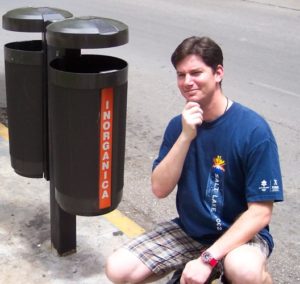Jeremy Allen, PhD, was recently appointed the Deputy Editor of Chemical Science, the flagship journal of the Royal Society of Chemistry. While he is based in Cambridge in the UK, as part of his role as Deputy Editor, Jeremy works with international staff and attends conferences around the globe. We first met Jeremy at the 3rd annual University of California Chemical Symposium, where many attendees were interested in learning more about his career path and what led him to his current position. Read on to learn about Jeremy’s current role and how he went from earning a PhD to a rewarding career in publishing!
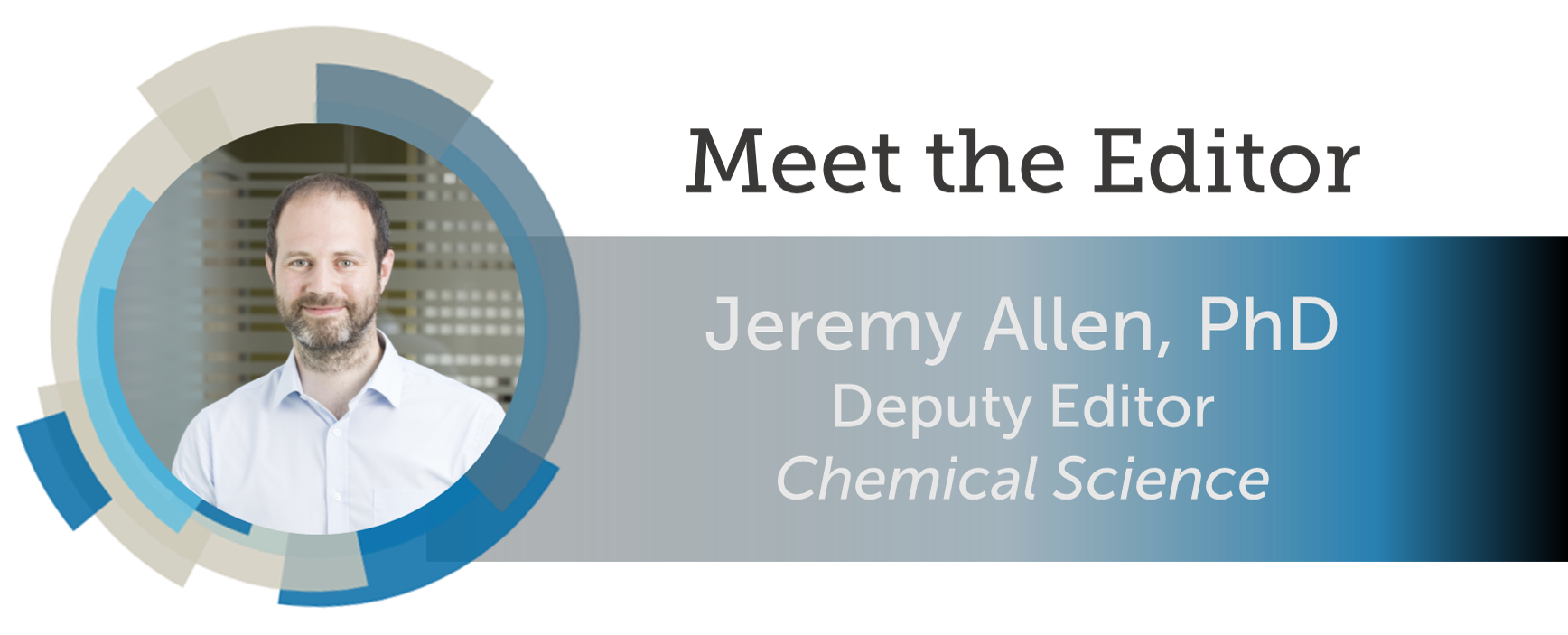
“I guess I fell into my career in publishing through a desire to move away from active research while still keeping in touch with science. After my undergraduate degree I completed a PhD in computational chemistry. I was unsure about what to do as I was getting to the end of my graduate studies, and wasn’t really sure which direction to go in, but then a post doc opportunity turned up so I thought I’d give it a go. I stuck with my post doc for about 5 years altogether but for the last couple of years I knew that research wasn’t going to be the career for me – I didn’t have the passion and drive for the work that I felt I’d need to be a really successful academic and lecturing didn’t really appeal to me too much – so I started to look around for other industries/roles to move into. By chance I bumped into a former PhD student from my post doc group who was working at the RSC and she mentioned that they were recruiting. Like her I had a similar interest in science communication and I enjoyed proof reading/editing papers and theses from my group so thought I’d give it a try.
“I knew that research wasn’t going to be the career for me – I didn’t have the passion and drive for the work that I felt I’d need to be a really successful academic and lecturing didn’t really appeal to me too much – so I started to look around for other industries/roles to move into.”
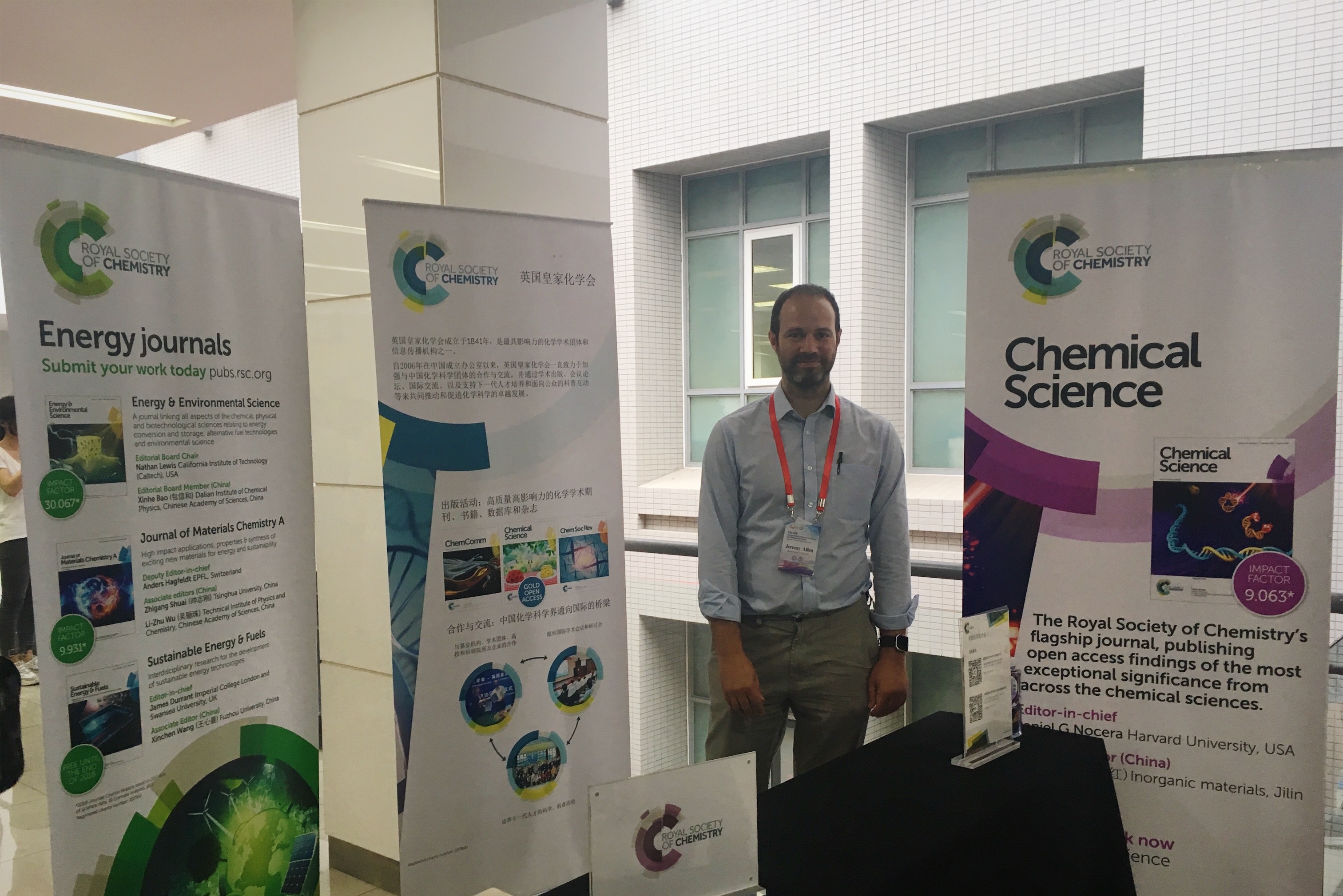
Jeremy Allen at the 4th International Conference on Energy and Biological Materials in Hefei, China
“I’ve now been with the RSC for about 4 years and continue to enjoy the role. Publishers differ in whether they have in-house professional editors to handle papers, or whether they use academic-based editors. For the ACS, for example, all editors are based in academia with their staff supporting them in their role, whereas Nature editors are all professional editors. At the RSC we have a mixture, and the composition varies by journal. When I first started at the RSC I worked on PCCP and Nanoscale as a Publishing Editor. PCCP is a hybrid journal so it uses a mixture of the two, giving me a great opportunity to work with and support our academic editors while handling papers myself through the peer reviewer process. This ranged through carrying out initial assessments to check if a submitted manuscript was suitable for the journal based on scope, finding and inviting reviewers, and making decisions. In addition to this, I also played a role in commissioning cover artwork for Nanoscale, editing accepted manuscripts to make them ready for publication and I helped coordinate the production aspects of Nanoscale. I also was involved with a couple of Faraday Discussion meetings, which are essentially physical chemistry-based conferences where the speakers write a paper ahead of the meeting, which is sent to all delegates, and then the meeting is used to discuss the work. These discussions are all recorded by us and published in a volume with the papers. On one of our blogs, some of our Publishing Editors have shared some brief thoughts about their roles and experience which may be of interest to anyone considering a career in publishing.”
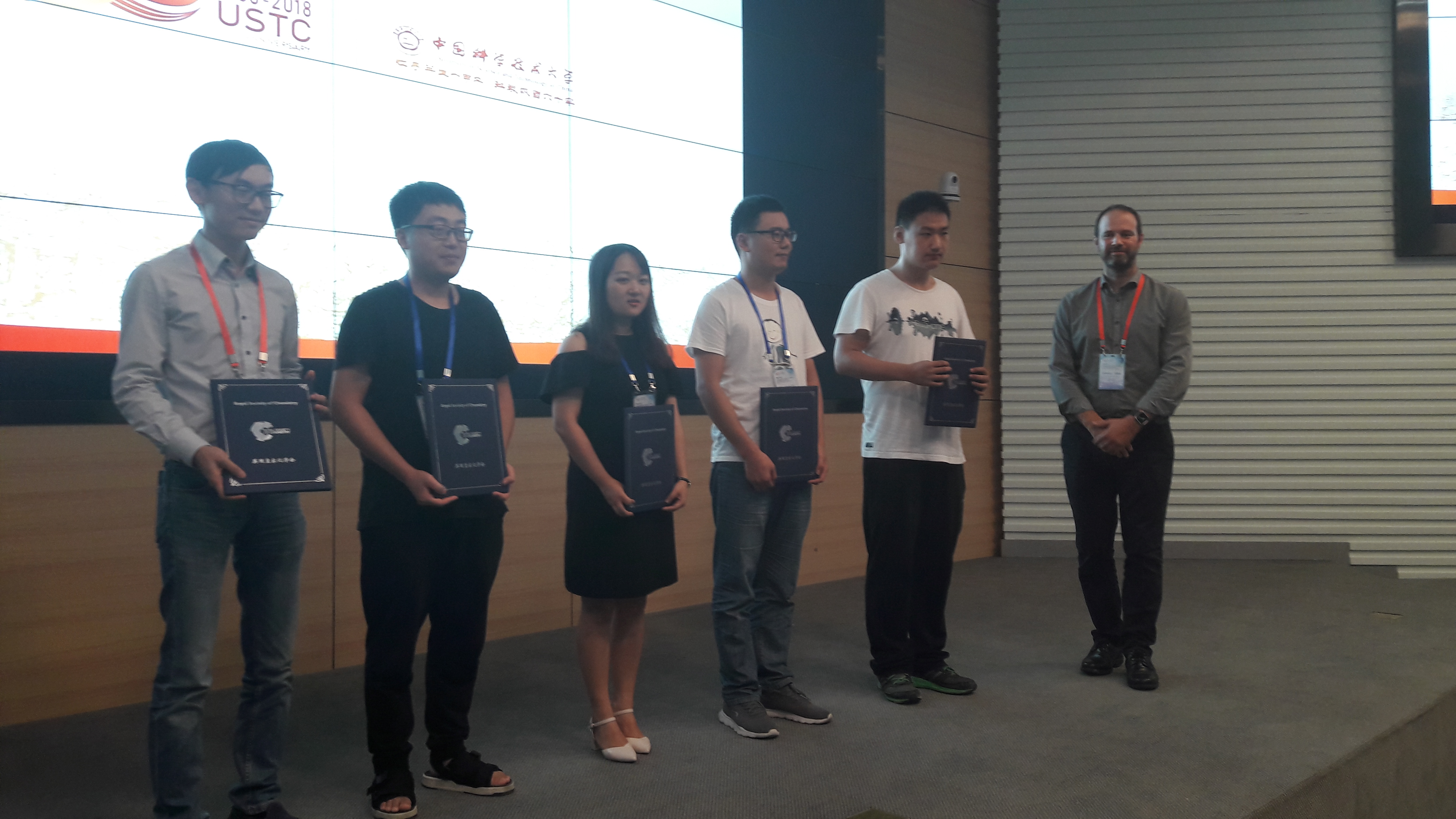
Jeremy Allen with poster prize winners at the 4th International Conference on Energy and Biological Materials.
“I now work alongside the Executive Editor and the Editorial Board, analyzing journal performance and planning the longer term strategy. I am responsible for putting together plans of how much work we want to commission for the journals I work on and what we will do to enhance their visibility within the community.”
After working as a Publishing Editor for a little over 3 years, I then changed position to become Deputy Editor for Chemical Science, ChemComm and Chemical Society Reviews. This role is more about the development of a journal, rather than production, and is much more varied. I now work alongside the Executive Editor and the Editorial Board, analyzing journal performance and planning the longer term strategy. I am responsible for putting together plans of how much work we want to commission for the journals I work on and what we will do to enhance their visibility within the community. I also go to conferences, like a recent GRC (Gordon Research Conference), to connect with academics, to hear of the new developments in a given field and to get direct feedback on our journals and the publishing landscape from our authors/reviewers point of view. My role has been taking me to amazing new places around the world – I recently attended a conference in China, the 4th ICEBM. There I had the opportunity to meet poster prize winners, colleagues like Hongmei Peng from the RSC’s Shanghai office, and Xinhe Bao, who was one of the organizers and also serves on the Editorial Board for Energy & Environmental Science.
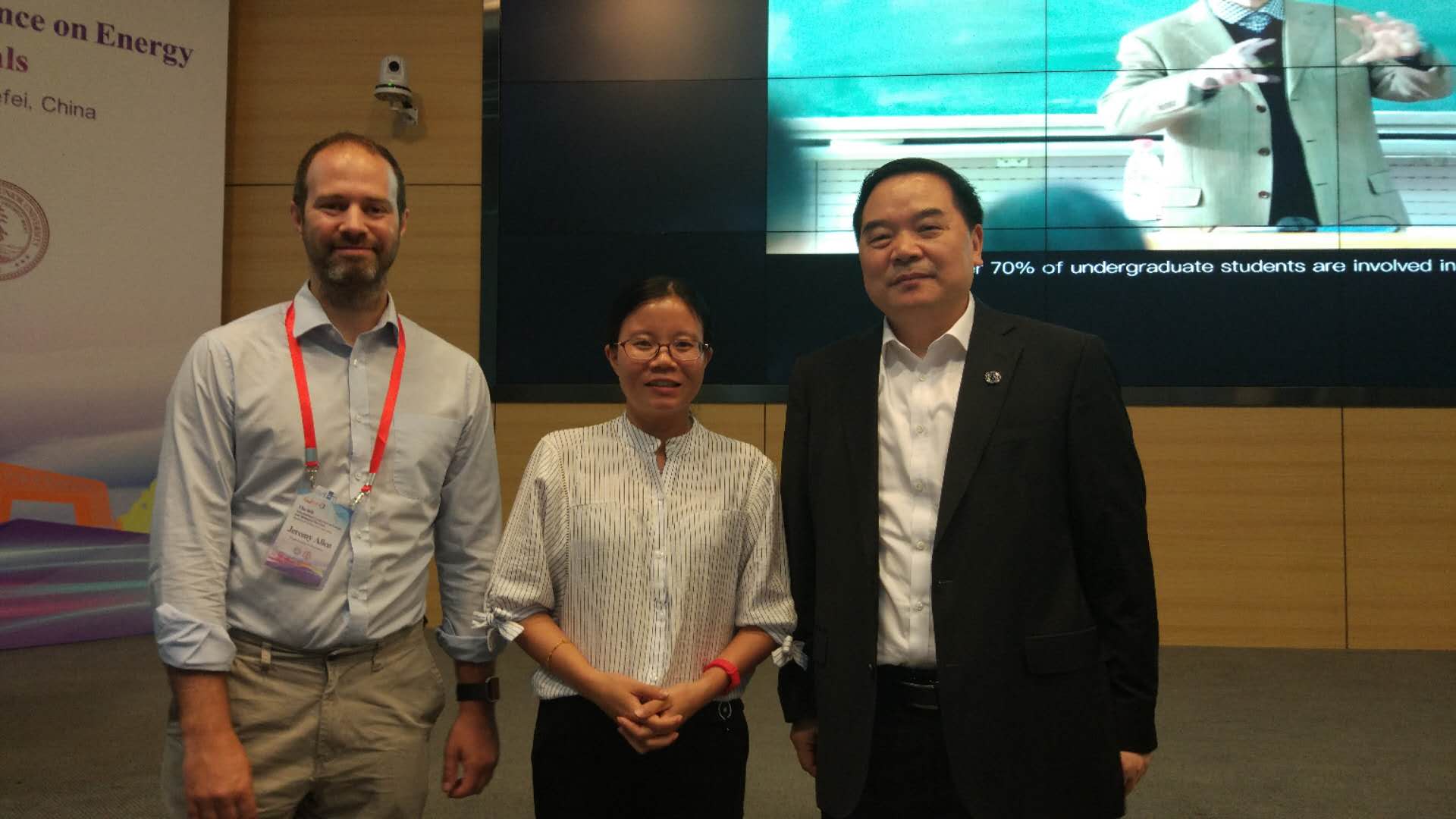
Jeremy Allen with Hongmei Peng (center) from the RSC Shanghai office and Energy & Environmental Science Editorial Board Member Xinhe Bao.
“Working for a society publisher is also really nice, not only because of the not-for-profit motivations, but also because there is a whole aspect to the organization that isn’t publishing and focuses on supporting people in the chemical sciences…”
Overall, I’ve really enjoyed working in publishing over the past 4 years and have no plans on changing career anytime soon! Working for a society publisher is also really nice, not only because of the not-for-profit motivations, but also because there is a whole aspect to the organization that isn’t publishing and focuses on supporting people in the chemical sciences, whether it be through education, RSC membership, conferences/events, awards or influencing government policy which leads to a really diverse group of people to work with. While publishing is relatively self-contained at the RSC, there are opportunities to interact with other departments, and potential future career options too!”
We’re happy to have Jeremy on board with Chemical Science and we’re excited to see what the future will hold as the journal continues to develop. The upcoming year will surely be a time of excitement, with IUPAC declaring 2019 the International Year of the Periodic Table. We expect lots of events and opportunities to meet more RSC Editorial Board Members, Associate Editors, and Deputy Editors like Jeremy. Next time you’re at a conference that is being supported by Chemical Science, keep an eye out for Jeremy and make sure to say hello!











 We wish to extend our sincerest congratulations to all of our Board Members, as they continue to impress the community with their achievements and contributions!
We wish to extend our sincerest congratulations to all of our Board Members, as they continue to impress the community with their achievements and contributions!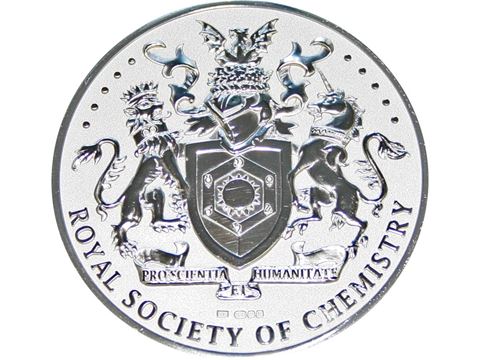
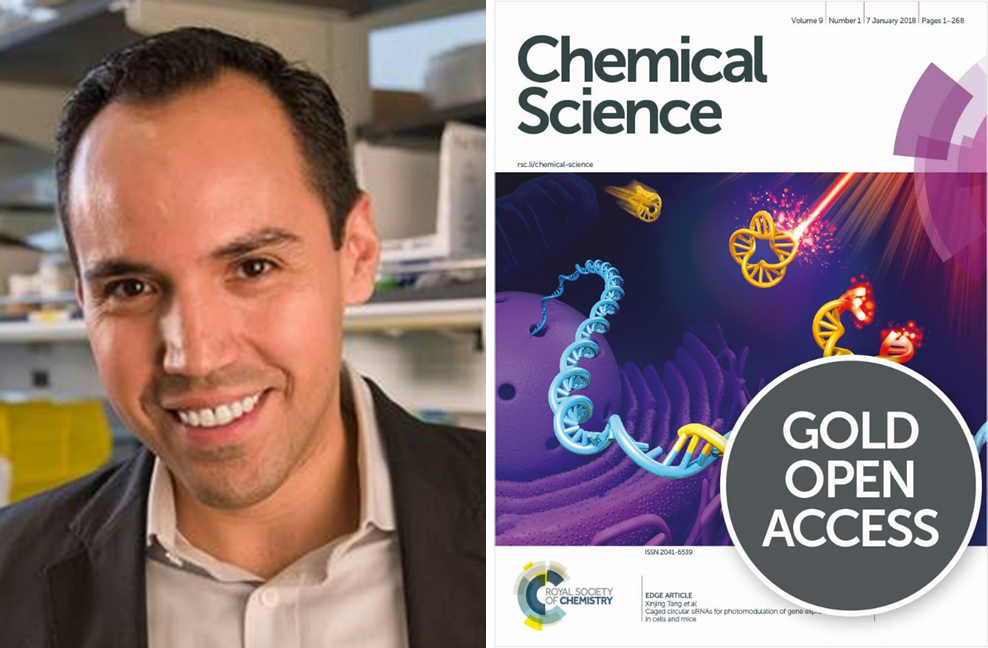
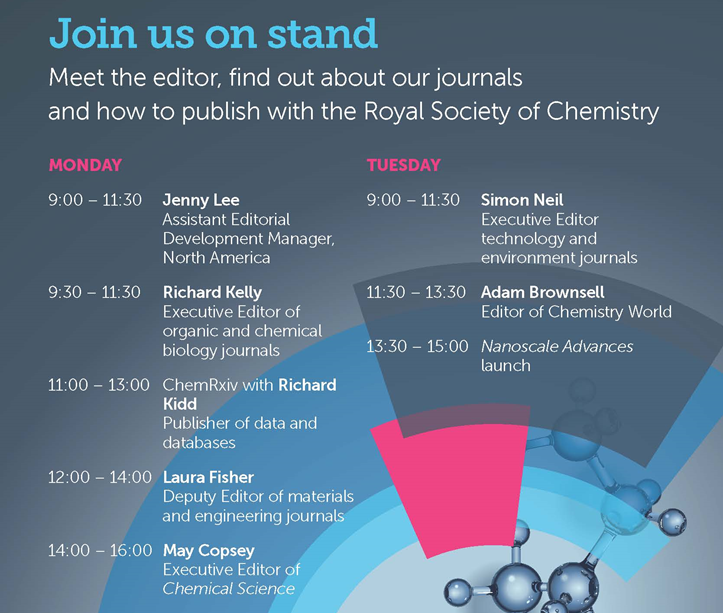
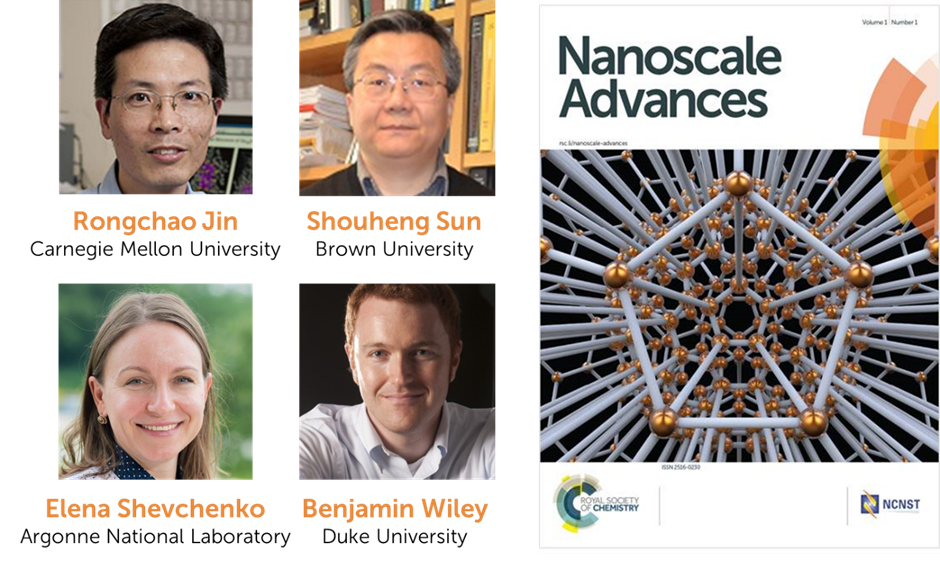
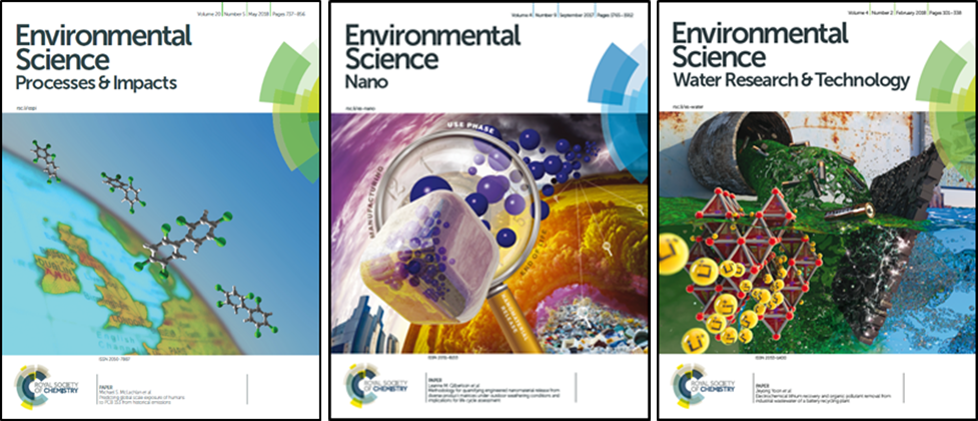
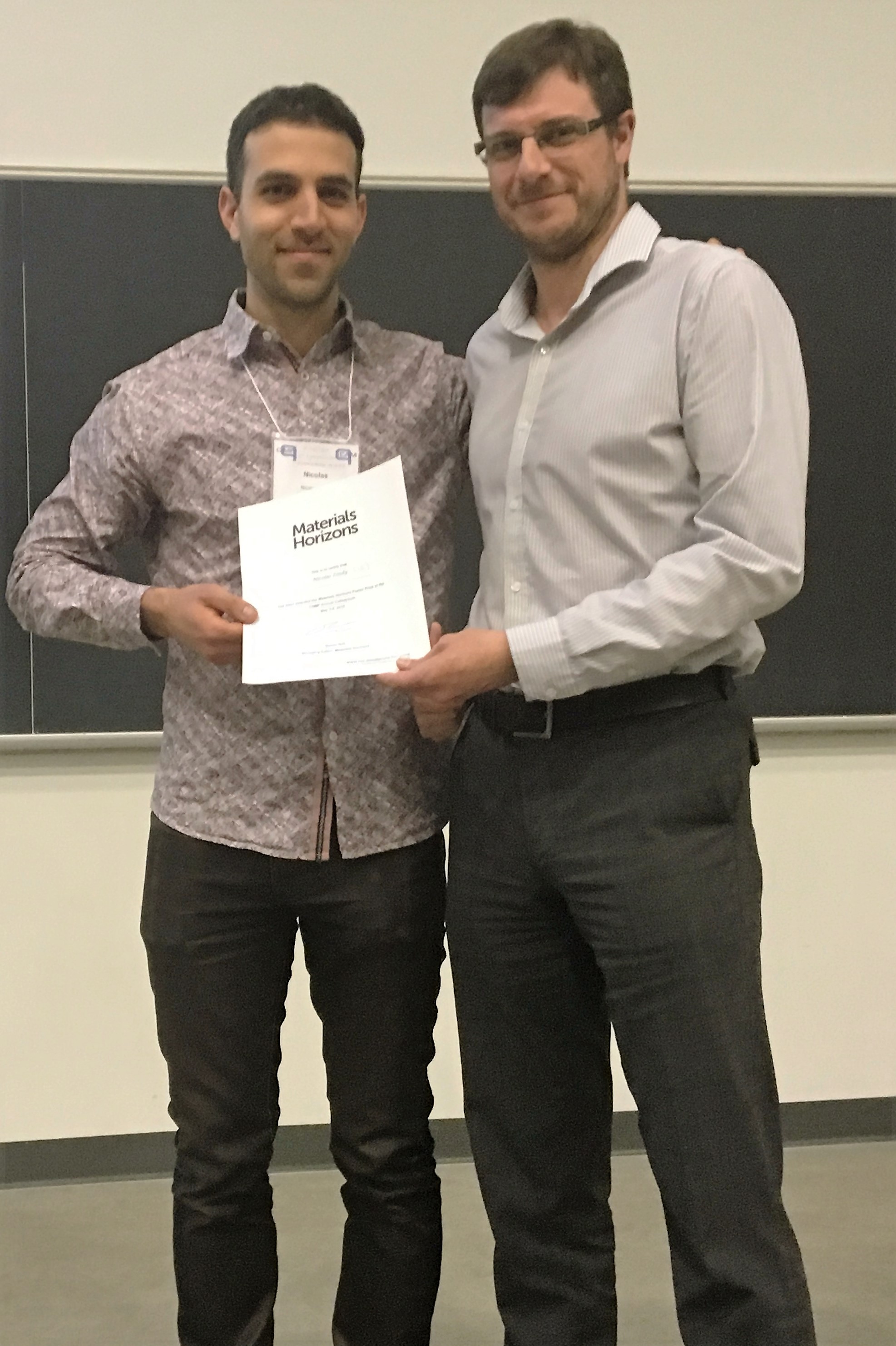
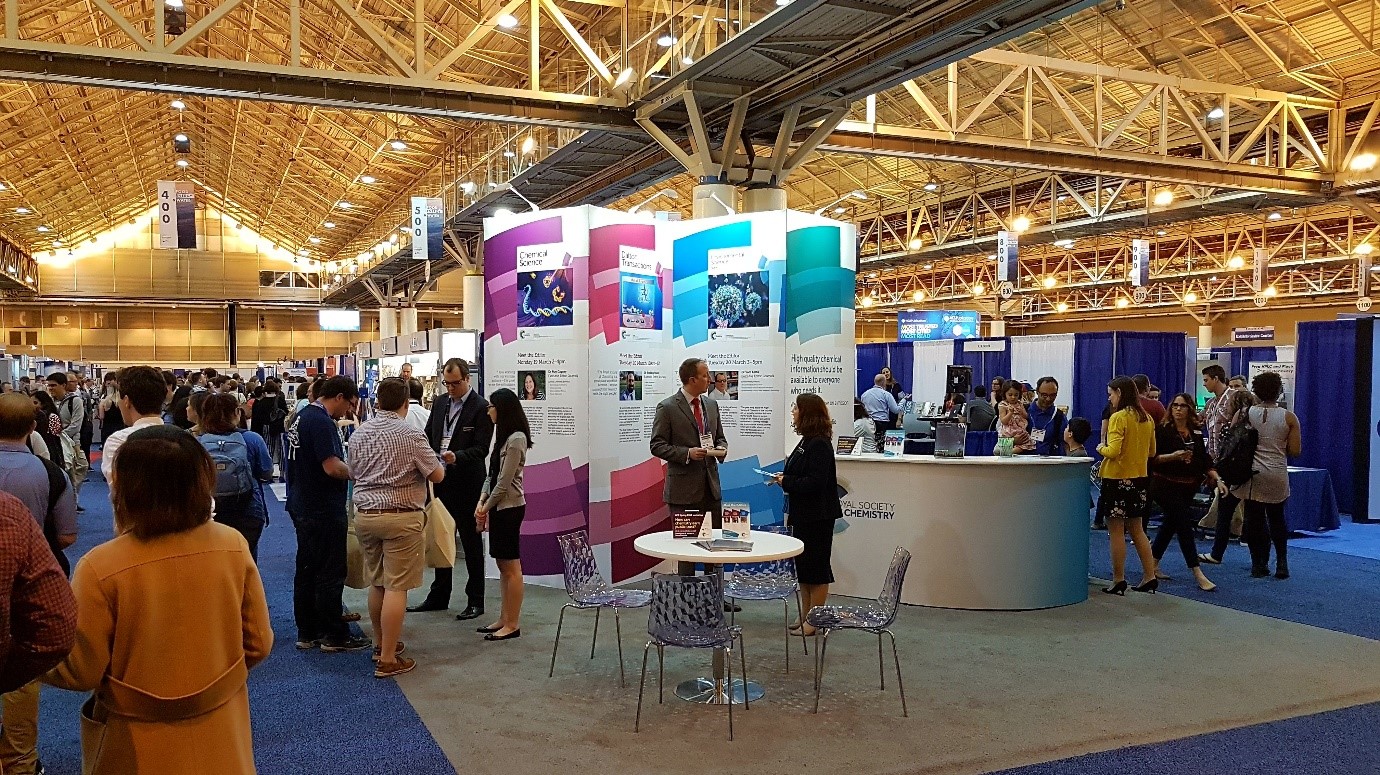
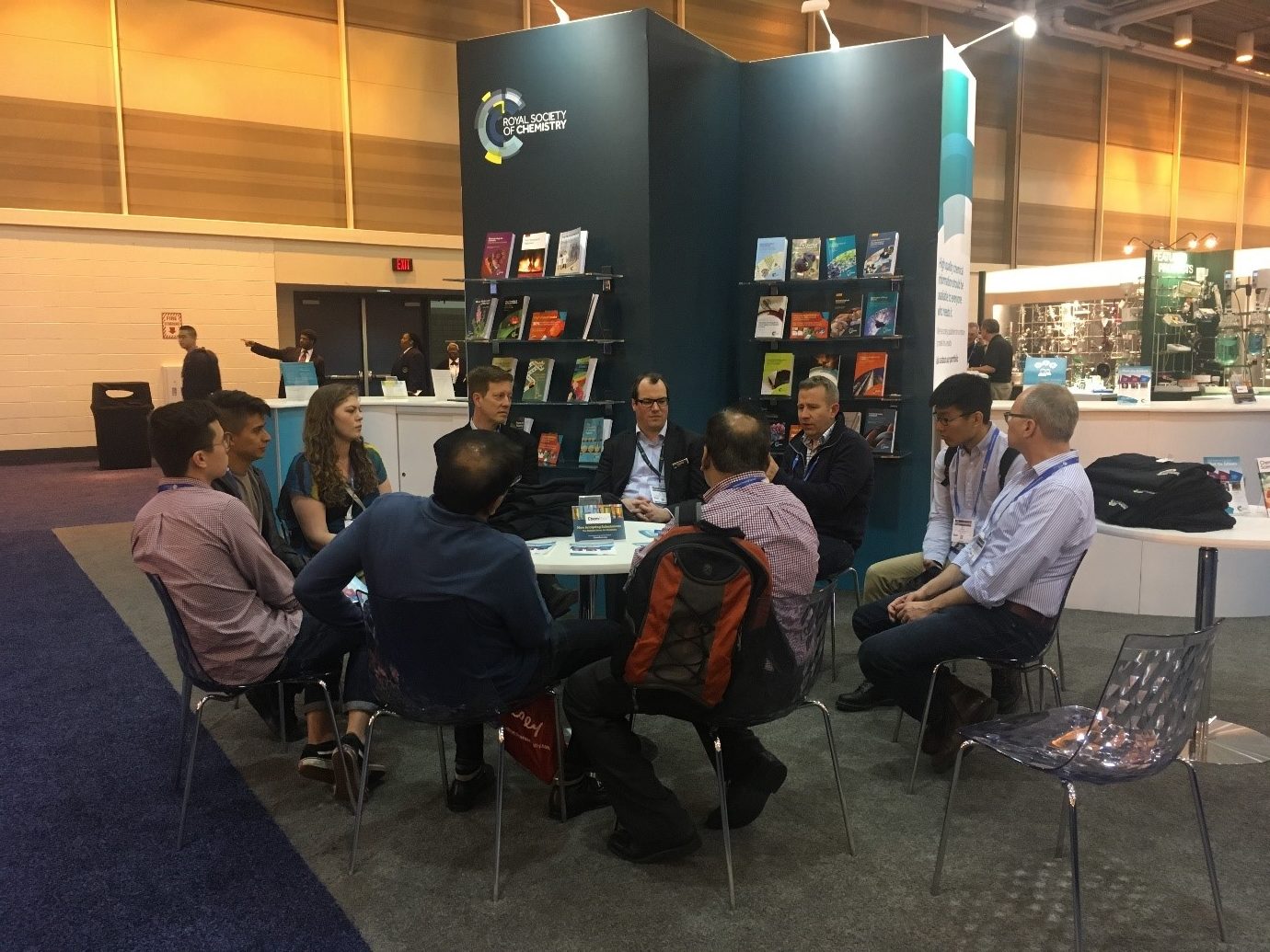
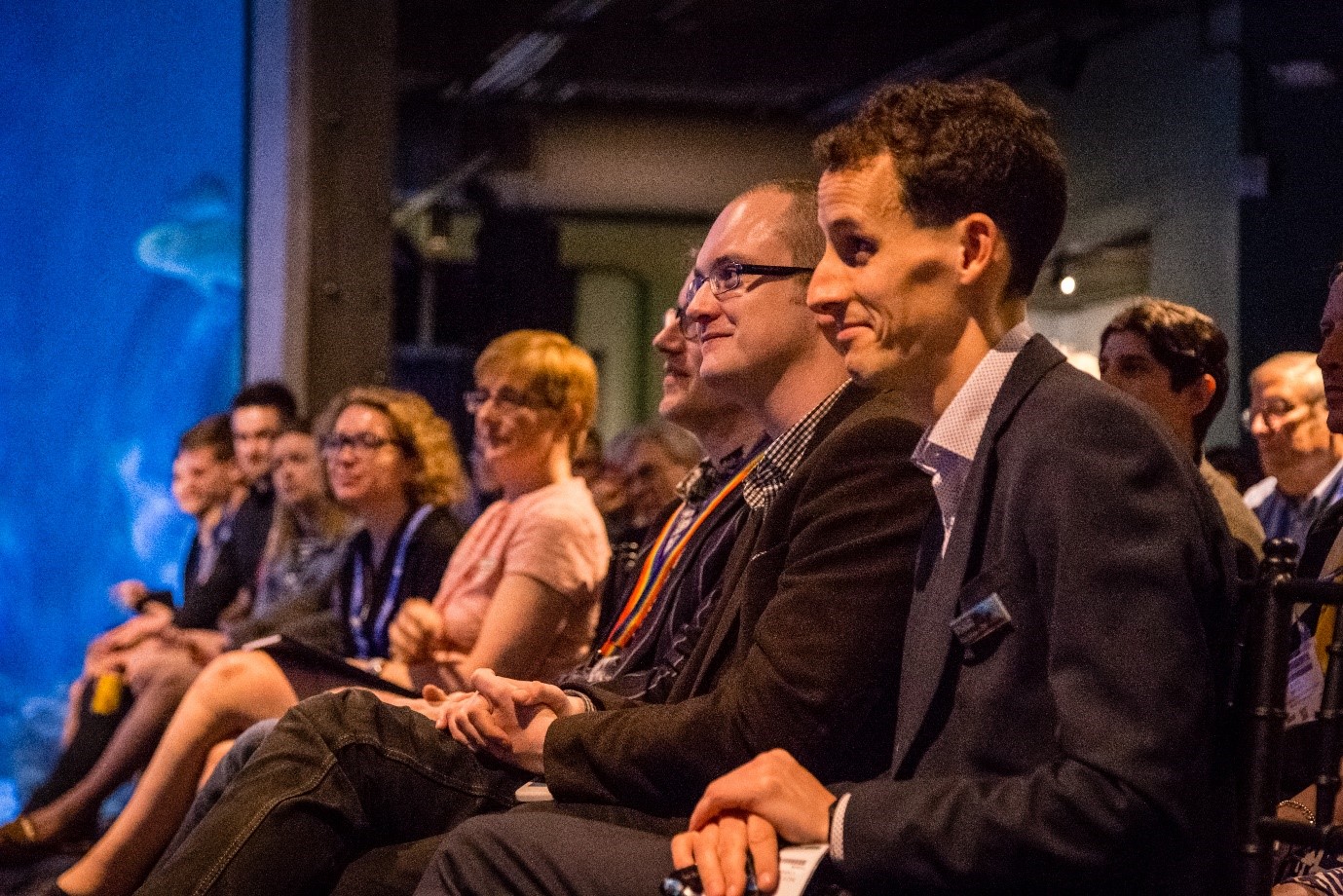

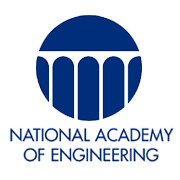 s
s
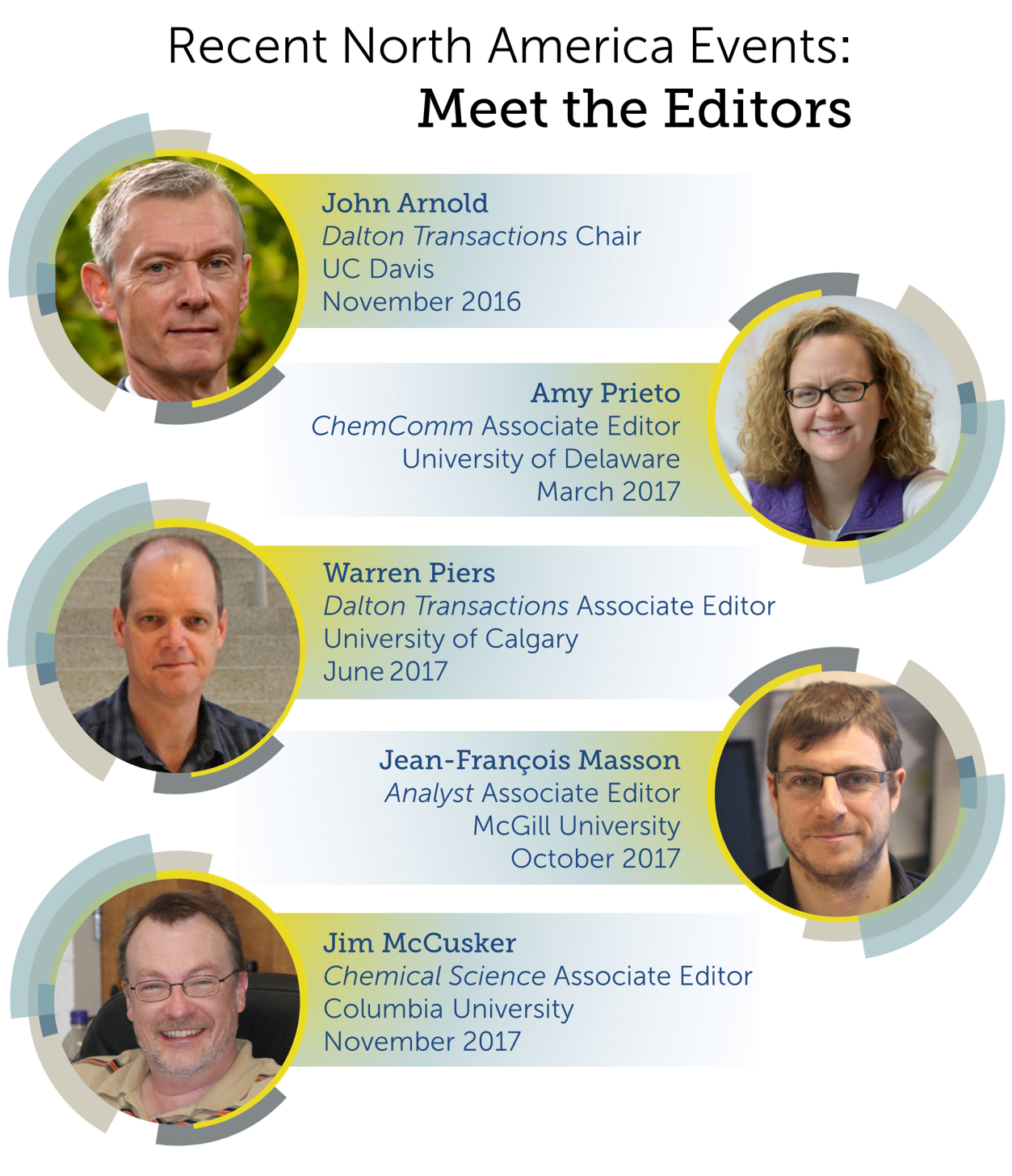
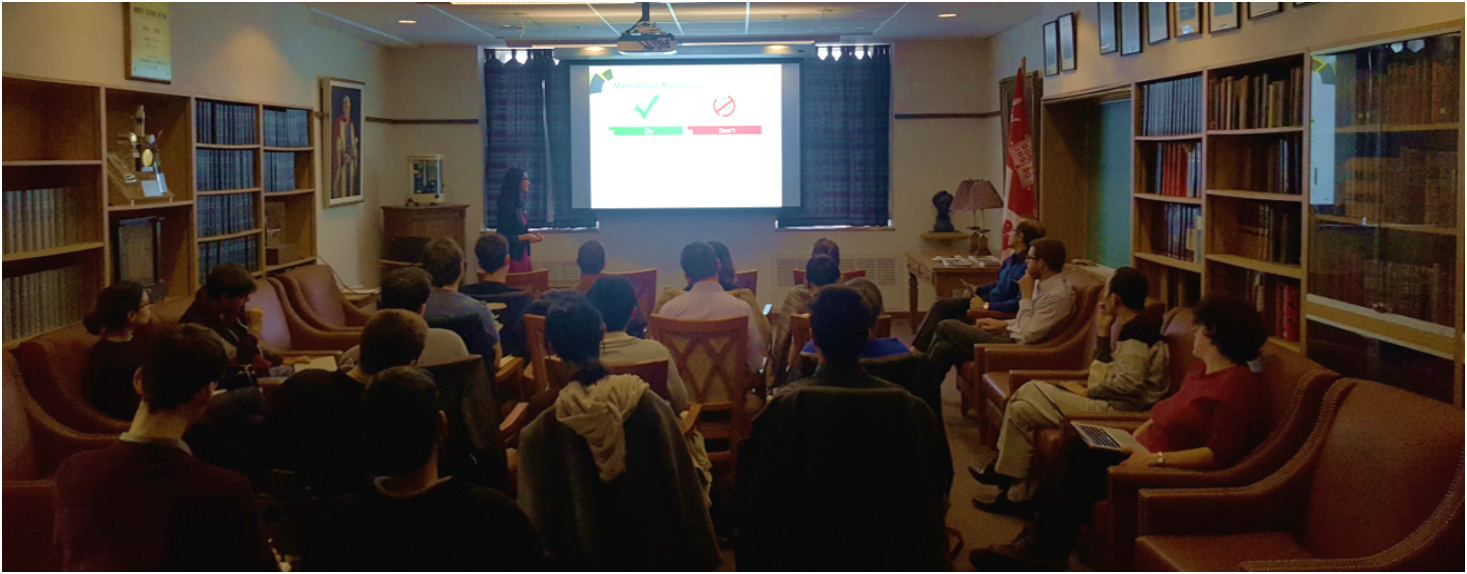
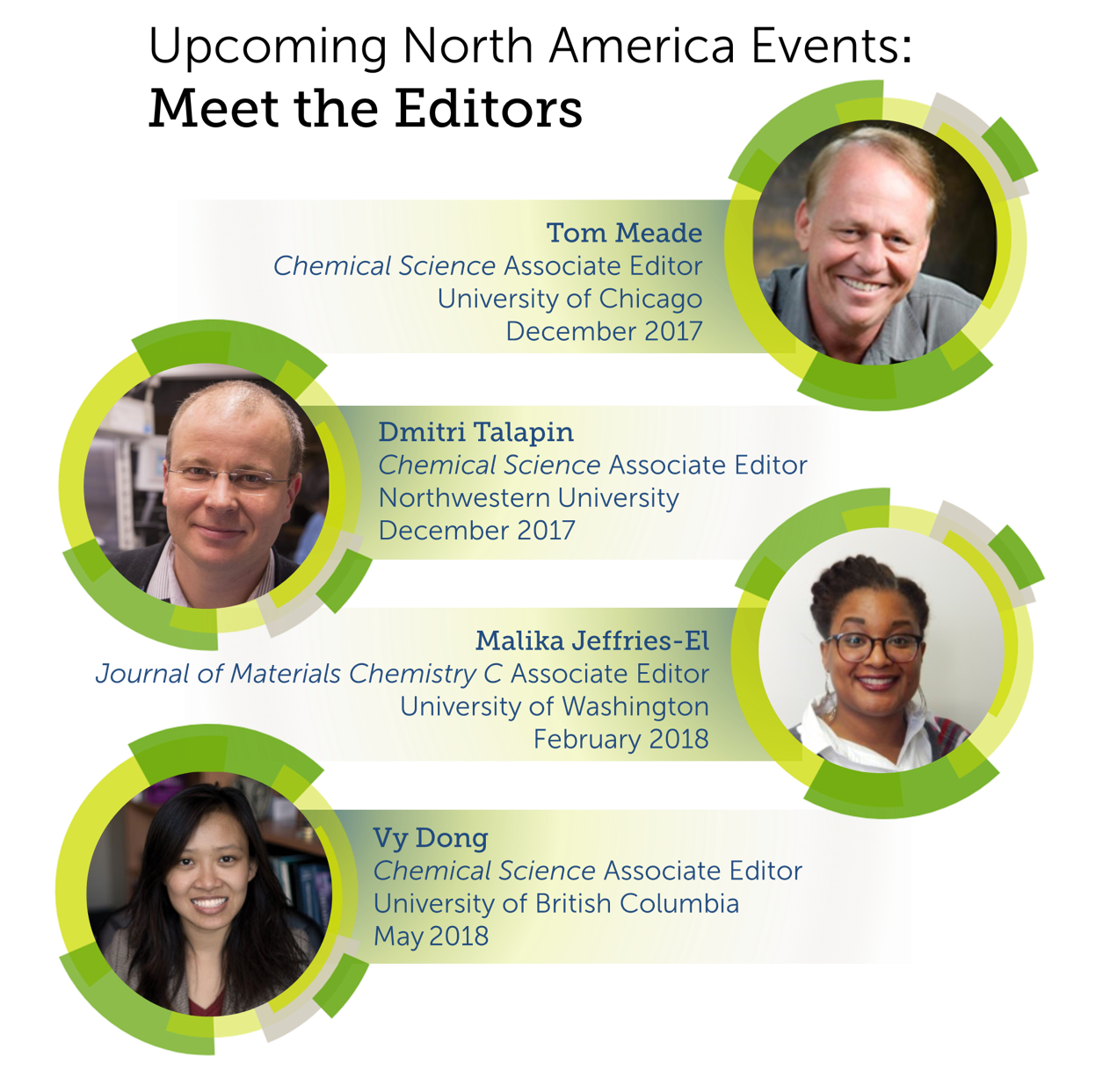 We are already planning several upcoming Meet the Editor events around North America and hope to have even more to come. If your department is planning to host an RSC Associate Editor and would like to include these activities, let us and the Editor know you would like to add a time for us to give a talk or informal lunch discussion with tips on publishing! Contact our Americas team (americas-editorial@rsc.org) for more information.
We are already planning several upcoming Meet the Editor events around North America and hope to have even more to come. If your department is planning to host an RSC Associate Editor and would like to include these activities, let us and the Editor know you would like to add a time for us to give a talk or informal lunch discussion with tips on publishing! Contact our Americas team (americas-editorial@rsc.org) for more information.